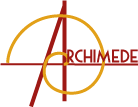Abstract
Title: Imago Genitalium: Introduction to the special issue “The phallus in Antiquity”
The present special issue of the journal Archimède. Archéologie et histoire ancienne, organized under the auspices of the Imago Genitalium: Sex and Gender in Ancient Mediterranean Art project, focuses on depictions of the phallus in Antiquity. It aims to fill the gap in research on the sexual parts of the body, their associated organs (the breasts) and their fluids. Due in part to the legacy of Victorian-period laws banning material deemed to be “indecent” or “obscene” because it was held to connote sexuality (however vaguely defined), a large amount of material depicting images of human genitalia in Antiquity has regularly been isolated from its original material contexts, sequestered in specially designated “secret cabinets” of museums, and hidden from public view. Despite some progress, many scholarly accounts of Antiquity fail to integrate this material into the cultural and material contexts from which it was systematically stripped, resulting in distorted views. The present special edition, the first publication of the Imago Genitalium group (https://genitaliaandco.hypotheses.org/equipe), draws attention to representations of the phallus in Egypt, the Levant and Asia Minor, Greece, and the Roman Empire to better understand the cultural significations and ritual functions associated with those representations. Although there are some exceptions, in general the images discussed did not connote “obscenity,” but instead represented the positive terms in a series of overlapping dualities: life/death, creation/destruction, health/illness, protection/harm, and prosperity/misfortune. The essays in this special issue deal with the multifarious appearances and usages of phalli within the contexts of funerary and mortuary practices, rituals of kinship attribution, divination, procreation and fertility, healing and medicine, and artistic conventions deployed to distinguish toddlers from adults or to elicit laughter and thus to avert the evil eye.
Keywords: Phallus, gender, religion, ritual, medicine.




